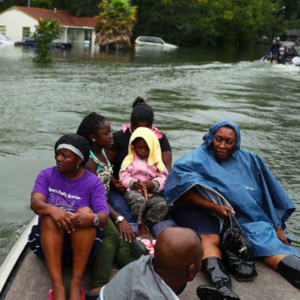IPCC report warns of accelerating climate change, calls for action
Human activity has led to changes in the Earth's climate in every region and across the whole climate system — changes that are unprecedented in thousands, if not hundreds of thousands, of years and will be irreversible for hundreds of thousands of years, a report from the United Nations' Intergovernmental Panel on Climate Change (IPCC) finds.
The first installment of the IPCC's Sixth Assessment Report, Climate Change 2021: The Physical Science Basis, found that greenhouse gas (GHG) emissions from human activities account for approximately 1.1°C of global warming between 1850-1900 and 2010-19 — a rate that is unprecedented in at least two thousand years and expected to accelerate over the next twenty years to reach or exceed 1.5°C. The report estimates that in 2019, atmospheric carbon dioxide concentrations were higher than at any time in at least two million years; concentrations of methane and nitrous oxide were higher than at any time in at least eight hundred thousand years; and global mean sea level had risen faster since 1900 than over any preceding century in at least the last three thousand years.
"It is unequivocal that human influence has warmed the atmosphere, ocean, and land," the report states. "Human-induced climate change is already affecting many weather and climate extremes in every region across the globe. Evidence of observed changes in extremes such as heatwaves, heavy precipitation, droughts, and tropical cyclones, and, in particular, their attribution to human influence, has strengthened since [the Fifth Assessment Report]."
The study presents five scenarios for changes in annual GHG emissions between 2015 and 2100 and projects that global surface temperature will continue to increase until at least mid-century under all five scenarios — including those with low and very low GHG emissions. Without deep reductions in CO2 and other GHG emissions in the coming decades, the report's authors warn, global warming will exceed 1.5°C and even 2°C during the twenty-first century, and the frequency and intensity of extreme weather events, agricultural and ecological droughts, intense tropical cyclones, and loss of Arctic sea ice, snow cover, and permafrost will increase in direct relation to global warming.
To limit human-induced global warming to a specific level, the report calls for reducing cumulative CO2 emissions to reach at least net zero and cutting other GHG emissions. The study projects that the impact of significant reductions in GHG emissions could initially be masked by natural variability but discernible differences in global surface temperature trends could emerge within two decades.
The report includes an interactive atlas that provides a detailed regional assessment of climate change, including a focus on useful information that can inform risk assessment, adaptation, and other decision making, as well as a framework to help translate what changes in heat, cold, rain, drought, snow, wind, and coastal flooding mean for society and ecosystems. By the end of the century, scenarios with low and very low GHG emissions would significantly limit increases in the frequency of extreme sea level events, heavy precipitation and pluvial flooding, and exceedance of dangerous heat thresholds, while limiting the number of regions where such exceedances occur.
"This report is a reality check," said IPCC Working Group I co-chair Valérie Masson-Delmotte. "We now have a much clearer picture of the past, present and future climate, which is essential for understanding where we are headed, what can be done, and how we can prepare."
"Stabilizing the climate will require strong, rapid, and sustained reductions in greenhouse gas emissions and reaching net zero CO2 emissions," said IPCC Working Group I co-chair Panmao Zhai. "Limiting other greenhouse gases and air pollutants, especially methane, could have benefits both for health and the climate."






